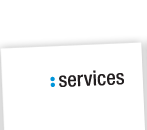Choosing International VendorsFreedom:Look for vendors and partners who will let you go. You might get better rates with long term contracts, but evaluate the costs and risks of binding yourself to one vendor, especially when starting out. However, long term contracts (12+ months) can be very efficient for you as well, if the partner is reliable. References:If possible, ask an existing client about their experience with the regional vendor you are looking at hiring. Translation of TV-ShowsBe bold. Don't let locals maneuver you into something that benefits themselves. Translation houses will always earn more on audio dubbing projects and local, original language production. You might have been recommended to produce a completely different show. Look for the value: it might be a good idea, if the show concept is relevant to its culture. People want/need to see and hear YOU!But keep in mind: your greatest asset, the very essence of your ministry is your anointing, your giftings, the personalities, ministers and talents on your own TV-show. Ask yourself: will I loose anything if my original voice, or even my own hosts/speakers are replaced by locals? Keep this in mind as well: the audience you are trying to reach might not be as anti-English or anti-American as some locals might want to make you believe. Who knows? They might rather want to see you, your hosts/speakers, your original humor and character of ministry and they might understand English surprisingly well. EuropeDon't forget: the percentage of English speakers within most European societies is increasing tremendously, and already has during the past 5 years (thanks to Internet and the globalization/syndication of modern media content). The audience demand to hear the original voice(s) of the speaker(s) on Christian TV-programs is increasing very fast as well. However, most local TV networks will require at least a subtitled version of your program, if not even a dubbed one (often depending on it's range and market shares). OutletsBigger is not always better. I have seen large TV-networks in Europe and Asia going on air with very little market saturation and market shares over the first 3 years, but with enormous "airtime prices" for Christian ministries. It seems like some channels and networks are building their business, sponsored by Christian ministries. That is not an ideal situation. Don't hesitate to start smaller and look for alternative, low cost outlets in the beginning. Always look for a good price/value ratio. (price = the amount of USD spent per minute. value = the REAL number of viewers) How can I find out about the real viewership numbers?1. Ask for the technical range. (satellite footprint, cable households) Don't make the mistake thinking that internet is global. Technically it is, but practically it is not. Just because you have an English or even multi lingual website does not mean, that you are reaching a global audience with it, even if your website statistics show visitors from various countries. The question is: how many visitors can you attract within the foreign region you want to reach? Don't hesitate to book video views on video portals that are truly local and in the language of your target region. This will imply that you need a subtitled version of your program at the least. But subtitles work very well for webcast! Many internet users are very acquainted with English, but may need subtitles as a "crutch" to lean on, whenever they miss the quint essence of your message. Please contact us...
|








